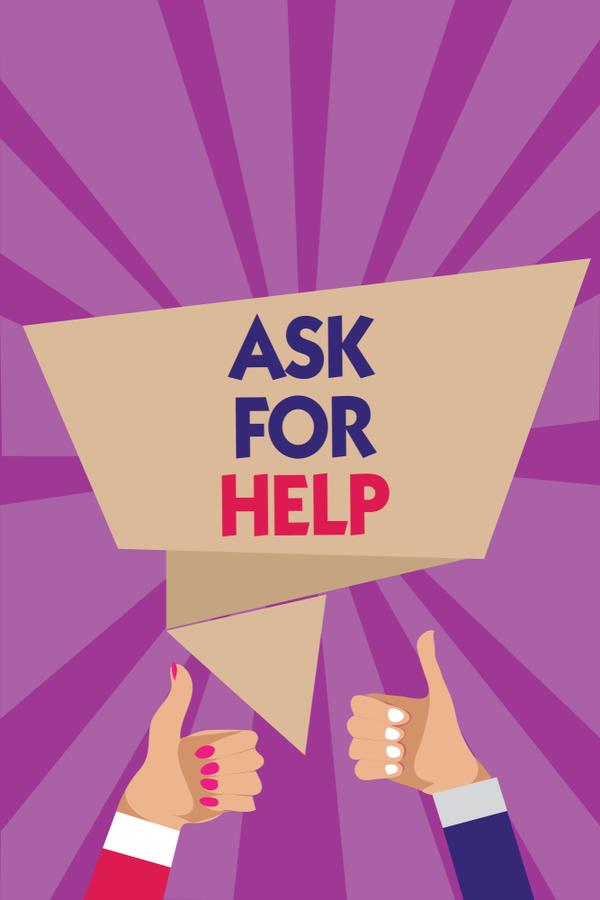 Asking for help is an important skill to master. We all need to ask for help sometimes, in both our personal lives and our work lives.
Asking for help is an important skill to master. We all need to ask for help sometimes, in both our personal lives and our work lives.
Asking for help can move us forward when we're stuck. It helps us feel that we're not alone, that we have each others' back, and it feels great to support a friend, partner, stranger, or team member.
However, if we bring the wrong energy to asking for help, it can achieve the exact opposite: We end up feeling hurt and alone, we don't get the help we need, and the person on the other side gets frustrated, because they don't feel respected, or they don't get to offer their support in a way that feels good to them. What does that look like?
Blaming. "Why haven't you solved this?" Giving up. "I can't figure this out" Throwing the problem at someone else. "Tell me what to do!"
So what to do when we need to ask for help?
Try to bring your very best self to the process. Put yourself in the shoes of the person you are asking for help, take a deep breath, and get specific. I try to do the following:
Give all the information needed. Really think it through: What does the other person need in order to answer? If you can provide all the information right there, that saves an enormous amount of energy. You already have the info in your head, writing it down doesn't require that much, but it saves the other person from asking, which then gets you into a back-and-forth that wastes a lot of time and mental bandwidth.
It also might save the person helping you from having to context switch. Context switching is when you have to drop what you're doing and fill your mind with something else. Context switching is expensive. It might cost as much as 20 minutes to get back to where you were before the interruption. And that can add up very quickly!
Say what you've tried. Let the other person know what you've tried. Maybe they can quickly see something you've overlooked. Or they know to start looking somewhere else.
Give context. Why did this come up? Why does it need to be solved now? How will it help you to get this fixed?
What's the desired outcome? What are you really trying to achieve? A lot of the time, we think we need something but what we really want is something else and the solution is in understanding what we're really looking to achieve.
Set priority. How urgent is this? Is it blocking something critical or is it something that would be nice to fix someday?
Set expectations. There's a difference between "I've tried everything, I'm giving up until I hear from you", or "I'm still trying to figure out, but if anyone has some suggestions, throw them at me", or "I'm going to leave this for a few hours, here's where I'm at". Be clear about where you're at.
Ask early and ask a specific question. The act of defining your question in a clear way will very often lead you to figuring out the answer yourself. Therefore, when you find yourself going at something with tunnel vision, take a break, come back, define it in writing, and see if that solves it. If not, ask for help.
Asking for help in this way keeps you engaged as an empowered participant in the process of solving the problem. You learn more, invest more, and become a better team member.
Of course, you also have to think harder and it will push you to work through whatever emotional stuff comes up for you when you need help, but it's worth it!
These are my thoughts. What tips do you have?
What works for you when someone needs your help with something?
What are your ideas for how to make asking for help fun and productive?
Comments